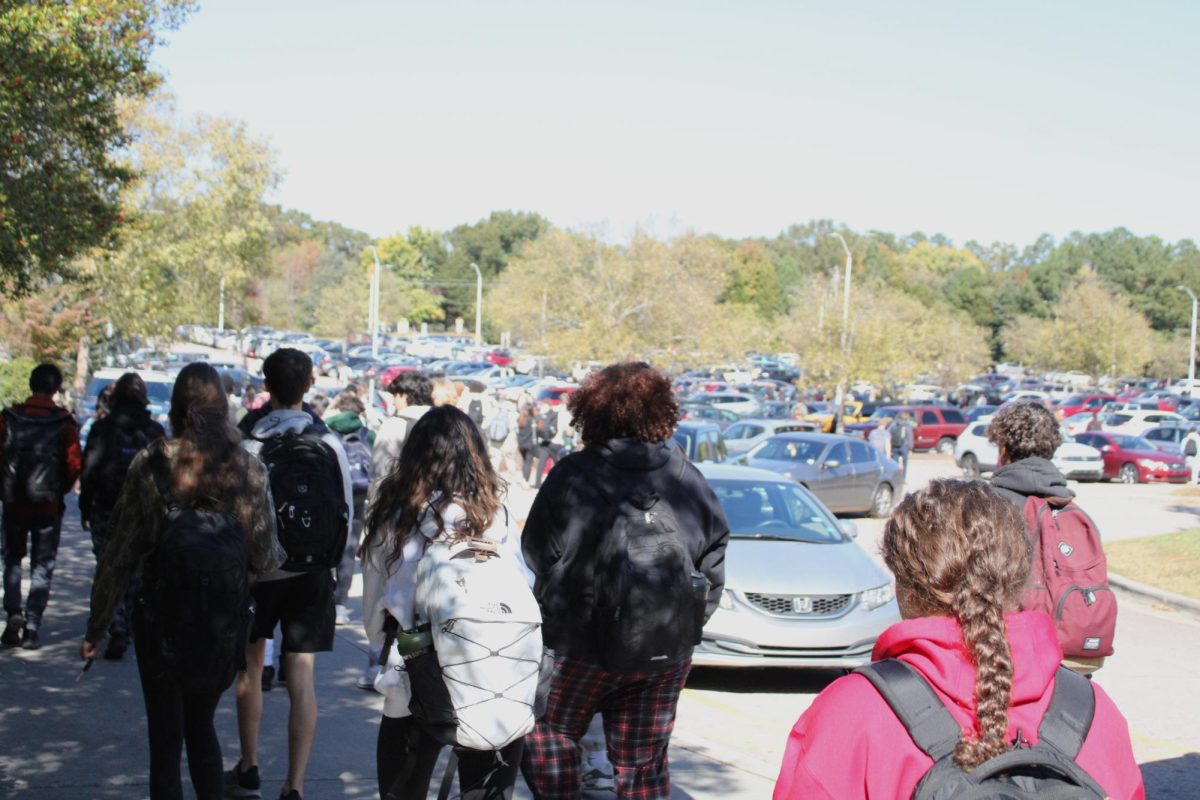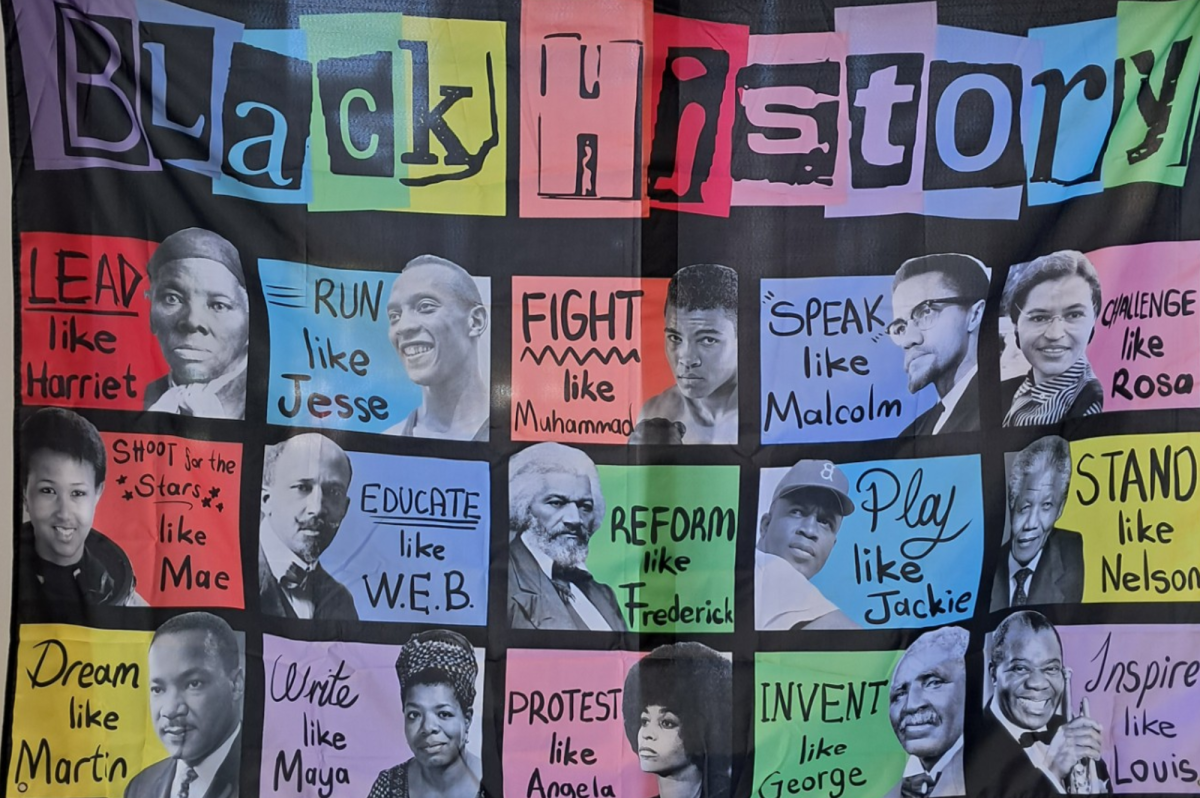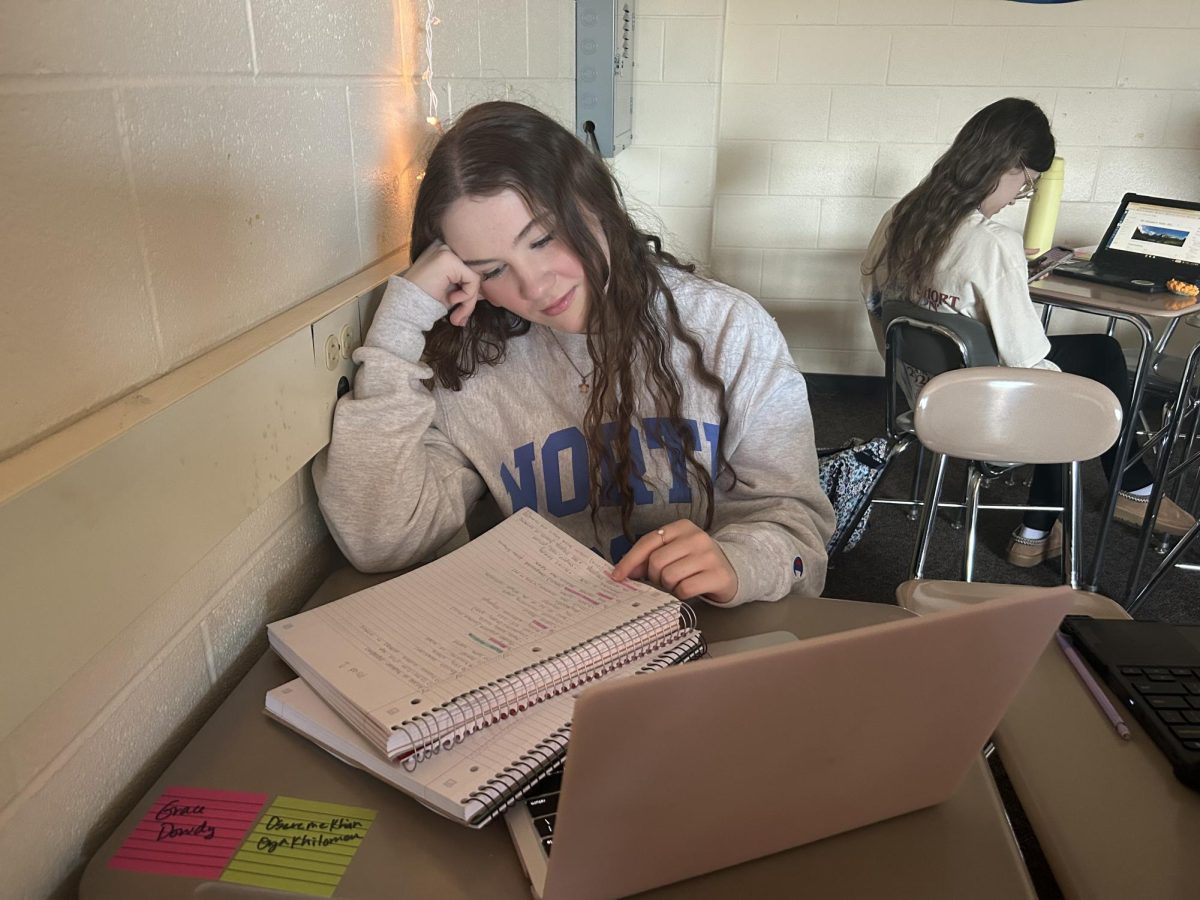This year, Wakefield High School introduced P.A.C.K. Time, a two-block and hour-long period allowing students to engage in their hobbies and studies. Using the AllTimely app, students are able to sign up for a variety of activities, such as game rooms, teacher help and even guided meditations along with their lunch period.
Heather Acery, assistant principal and creator of P.A.C.K. Time is optimistic about its effects on students.
“It gives students more opportunities to connect with each other and with staff, and they wouldn’t normally have the opportunity to build those relationships,” Acery said.
Mastering academic material is key to proficiency in class and on state and national exams. Acery hopes providing students with extra time will help them reach their full potential.
“Increasing the proficiency on EOCs and state exams and decreasing the number of students who are failing classes has a domino effect,” said Acery. “[Students] enjoy coming to school more when they feel successful and supported.”
Many students are overwhelmed with work and find P.A.C.K. Time to be a great opportunity to get work done. Senior and student-athlete Katie Pugh has a lot on her plate between sports and a rigorous course load. She has found this time very impactful to her academic success.
“I’m taking three AP classes right now, [so] it’s very helpful that I get to have time during the day to go ask my teachers questions and do test remediation,” Pugh said. “It’s made me less stressed [about my workload.]”
For many freshmen, high school is initially very overwhelming. Many find it difficult to make friends and adapt to a new environment, however, freshman Emma Goodspeed thinks P.A.C.K. Time has made it a lot easier to meet new people.
“I didn’t think I would really meet that many new people because a lot of my classes have the same friends,” Goodspeed said. “Through P.A.C.K Time, I got to make new relationships with people.”
Though P.A.C.K. Time has given many students a chance to connect with their school community, others also feel it is too restrictive.
“I don’t think there should be a cut-off time,” Bruce said. “If something pops up and you’re like, ‘oh, I actually need to do this,’ we should be able to change that past [activity].”
Though upperclassmen with lunch passes have the opportunity to leave campus for the full hour, underclassmen must remain on campus for the duration of P.A.C.K. Time. Junior Ainsley Barlow sympathizes with underclassmen.
“I like it because I get a longer lunch, but I would understand [that] for people that can’t go off campus it might not be as fun because they don’t get an hour lunch,” Barlow said.
Despite the various downfalls, it is evident that P.A.C.K. Time has been advantageous for many students. Through connection with peers and teachers, many are hopeful P.A.C.K Time will cultivate an attitude of academic success that will further expand the impact of this schedule alteration.
“I believe [P.A.C.K. Time] has the ability to make a big impact on students” Acery said.










